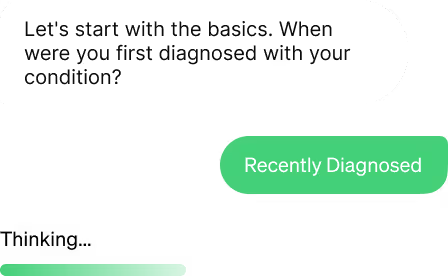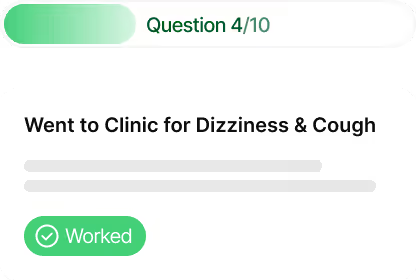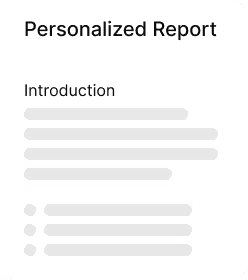Your personal AI assistant for
Multiple Sclerosis



.avif)

What is multiple sclerosis?
Multiple sclerosis (MS) is a chronic condition affecting the central nervous system, believed to be an autoimmune disorder where the body's immune system mistakenly attacks healthy tissue. MS is highly unpredictable and varies widely among individuals—some may experience only mild symptoms, while others may suffer significant impairments such as difficulty with vision, speech, writing, or walking due to disrupted communication between the brain and the rest of the body.
Myelin, a protective fatty and protein-rich layer surrounding nerve fibers, is targeted by the immune system in MS, leading to its destruction. This damage results in scar tissue, known as sclerosis, forming in multiple areas, often referred to as plaques or lesions. These damaged nerves struggle to transmit electrical impulses effectively between the brain and other parts of the body. MS can manifest in different forms: relapsing-remitting MS, characterized by repeated attacks with periods of remission, and primary progressive MS, where symptoms gradually worsen over time without distinct relapses.

What are the most common symptoms?
The symptoms of MS can be unpredictable, ranging from mild to severe and varying in duration. They may present in different combinations based on the specific areas of the nervous system affected. While certain symptoms are common, each individual may experience a unique set of symptoms.
Common symptoms include (but are not limited to):
- Fatigue: a pervasive sense of tiredness that can interfere with daily activities
- Numbness or tingling: often felt in the face, body, or extremities
- Muscle weakness: difficulty in moving parts of the body, leading to balance and coordination problems
- Vision problems: blurred vision, double vision, or loss of vision, usually in one eye at a time
- Difficulty walking: due to muscle weakness, spasticity, or balance issues

How can mama health help?
The mama health AI chatbot is designed by doctors to help people living with chronic conditions feel supported and informed every step of the way. Here’s how it can help you:
Share your story in your own words – describe symptoms, routines, and triggers without complicated tools.
Track your experiences over time – notice patterns and changes that might otherwise be missed.
Learn from real insights – get educational information based on research and other patients’ experiences.
Prepare for doctor visits – create a clear, organized summary to explain what’s been happening more confidently.
With mama health, you don’t just record symptoms — you start understanding your journey.
Real stories building better care
At mama health, we collect real-life patient stories to build a comprehensive, continuously updated dataset that reflects what it’s truly like to live with chronic conditions. Each story contributes to a real-time understanding of patient experiences, helping uncover patterns, challenges, and insights that traditional surveys often miss. By sharing your journey, you help expand collective knowledge and support future improvements in care and research for people living with similar conditions.
Take charge of your journey todayHow mama health helps


.png)
Your benefits




Our users say about it

How to start
Create an account with your email. Once you confirm it, you’re ready to start the chat with the AI
Tell about your condition: when symptoms started, what treatments you've tried and day-to-day impact.
The more you share, the better it understands you.
In just a few minutes, your AI gets to know you, giving personalized insights, and practical tips, just for you.
Developed and supported by doctors
Frequently asked questions
The healthcare system is missing a crucial piece—real patient experiences. We bring those voices back into the system, making healthcare truly patient-centric. By connecting data from patients, doctors, hospitals, and research, we help unlock new insights, improve treatments, and turn today’s incurable diseases into tomorrow’s breakthroughs.
- See what works – Learn from others with the same condition and avoid trial-and-error treatments.
- Get a clear health picture – Track your journey, compare with others, and gain deeper understanding.
- Be part of something bigger – Your experience helps improve healthcare and accelerate research.
We use the information shared on Mama Health to improve treatments and services for all patients. However, we ensure that no one—neither other patients, scientists, nor healthcare companies—can identify you personally.
To request the deletion of your data, simply send an email to support@mamahealth.com.

.webp)












.svg)
.svg)


.avif)




.avif)
.avif)
.avif)
.avif)



.avif)







.avif)

.avif)

